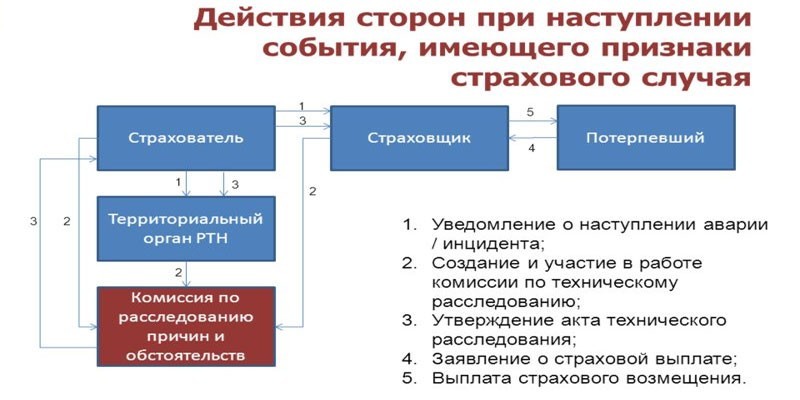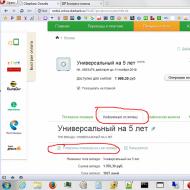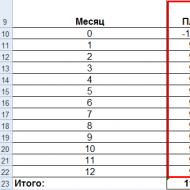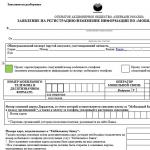
Is life insurance on a loan mandatory for the borrower?
For most Russians, obtaining a loan is the only way to solve the problem of lack of funds. When applying for a loan, banks offer applicants to minimize risks by taking out a life and health insurance contract.
Is life insurance legal when taking out a loan?
All mortgage products of banks, where the guarantee of the return of funds is real estate (an apartment under construction or purchased or existing housing), imply the execution of a collateral insurance agreement. This norm is established by law and is mandatory. As for car loans, purchasing a comprehensive insurance policy is optional, since this insurance is voluntary. For this reason, the bank does not have the right to refuse to issue a loan, although in practice things are different.
In consumer lending, banks insist on purchasing an insurance policy, but the borrower independently decides whether to buy insurance or refuse it. He can issue:
- Life and health insurance contract. In this case, the insurance company (IC) will reimburse the bank for the amount of debt (if death or illness was not caused by alcohol or drug intoxication or suicide).
- Insurance against loss of earnings. The insured event here is the reduction or liquidation of the enterprise.
Regulatory framework
There is no specific legislative or regulatory act that would regulate all issues related to the conclusion of an insurance contract for bank lending. The rules relating to this issue are discussed in several documents at once:
- The Civil Code contains the main provisions on the conclusion and termination of contracts. It determines that cases of compulsory insurance are established by law.
- Law No. 4015-1, concerning all issues of organizing the insurance business in Russia, adopted on November 27, 1992.
- Mortgage Law No. 102-FZ dated July 16, 1998, which defines the borrower’s obligation to insure the collateral transferred to the bank in the event of destruction or damage to the property.
- Law on the Protection of Consumer Rights No. 2300-1 of 02/07/1992, which prohibits the provision of one service at the expense of the purchase of another.
- Law on consumer lending No. 353-FZ (December 21, 2013).
What does life insurance provide when lending?
Taking out insurance helps to avoid problems with loan repayment in the event of an insured event. The risks that are subject to insurance when purchasing a policy can be different:
- death caused by an accident, illness and some other circumstances that are prescribed in the contract;
- permanent loss of ability to work due to disability;
- temporary loss of ability to work due to deterioration of health or illness, which led to the inability to earn income, as a result of which there is no money to pay for the loan.
Additionally, the applicant can insure himself against job loss. In this case, the insurance company will pay off the resulting debt if the reasons for dismissal were:
- bankruptcy or liquidation of an enterprise (organization);
- staff reduction;
- dismissal due to the end of the contract.
Advantages and disadvantages
Life insurance with a consumer loan has positive and negative aspects:
- Benefit for the bank. It is extremely important for the lender that the borrower insures as many risks as possible that could lead to non-payment of the loan. This is due to the fact that under any circumstances the bank will receive back the money lent to the citizen. For this reason, it can be explained why managers so persistently offer to take out life insurance with a loan.
- What are the benefits of insurance for the borrower? When applying for a voluntary insurance policy, the bank offers more favorable borrowing conditions, which are expressed in a lower interest rate, an increased amount and a longer loan term. When concluding an accumulative insurance agreement, the heirs will be able to receive savings regardless of when death occurred - before the loan is repaid or after.
- Flaws. The main disadvantages of purchasing a policy with a loan include the increase in monthly payments due to the inclusion of the cost of insurance, the need for a medical examination and the lengthy procedure for processing payments when an insured event occurs.
How and where to apply
The process of concluding a voluntary insurance contract is simple and consists of several successive steps:
- Choose an insurance company from the list offered by the bank or based on your own motives.
- Pay the insurance premium or part thereof.
- Sign a loan life insurance agreement.
Today, the number of insurance companies that offer health or life insurance when applying for a loan is large, and you can buy a policy not only during a personal visit, but also online on the insurer’s website. Each borrower can choose from his own preferences, because the tariffs for each insurance company will be different. In the table below, for comparison purposes, you can familiarize yourself with the offers of insurers in Moscow:
| Insurance Company | Coverage amount | Policy cost |
|
| VTB insurance |
| Individually |
|
| OJSC Sogaz |
| Up to 500 thousand | Individually |
| Renaissance insurance |
| Up to 650 thousand | Individually |
| Rosgosstrakh |
| Up to 420 thousand | 1% of the insurance amount |
| Sberbank life insurance |
| Individually | Individually |
Life and health insurance agreement for loan borrowers
When applying for a loan, in most cases the borrower is asked to sign a standard insurance contract - the cheapest option. A citizen has the right to request an extended policy, which will include additional risks that are often not taken into account in standard agreements. This will inevitably lead to higher insurance prices (a higher coefficient will be applied).
It is important not to hide the presence of certain diseases from the insurance company, since if an insured event occurs due to an existing illness, payment will most likely be denied. Additionally, it is recommended to stipulate compensation in the contract if the applicant’s work involves increased risk. The document must indicate the conditions for debt compensation in the event of an insured event and the amount of compensation.
List of required documents
To obtain a policy, the loan recipient will have to provide a certain package of documents. The list is small, but each insurance company may request additional papers, although this happens extremely rarely. For insurance you will need:
- passport or other equivalent document by which a citizen can be identified;
- completed application form;
- medical certificate confirming the presence or absence of chronic or incurable diseases.
When taking out a policy, bank clients often do not specify what needs to be done in the event of an insured event, but following the exact rules will help to receive maximum payments and reduce “paperwork.” The algorithm of actions looks like this:
- Make sure that the incident falls under the insured event, and there is a corresponding clause in the contract.
- Notify the lender and insurer about the incident by writing a statement.
- Collect the necessary documents, the list of which is approved by the Investigative Committee and depends on the terms of the contract.
- Submit the prepared documentation to the insurance company.
- Wait for the verdict and the transfer of funds.

Recognition of an insured event
After submitting all the documents, the insurance company checks them and, based on the results, makes a decision: to pay the money or refuse. The money is transferred to the beneficiary under the insurance contract - the bank. The funds are credited to the creditor in a special account, after which he uses them to pay off the debt. The amount of the insurance premium may be equal to the balance of the debt. Such cases occur if:
- the borrower has become disabled, as a result of which he can no longer work and service the loan;
- the loan recipient has died.
Restrictions or refusal to pay
There are often cases when an insurance company refuses to pay money under an insurance contract:
- the borrower received injuries incompatible with work, or died due to alcohol or drug intoxication;
- the cause of death was suicide;
- the applicant concealed from the insurance company a serious illness that led to the occurrence of an insured event;
- The citizen quit his job of his own free will.
Is it possible to refuse loan insurance?
The law provides that after concluding a contract, you can refuse the insurance imposed by the bank. This only applies to consumer loans when voluntary insurance is used. Several refusal methods are used:
- Write an application to cancel the insurance contract during the cooling-off period.
- Write an application for termination of the insurance contract, if it contains an appropriate clause that allows you to return the premium in case of early payment of the debt to the bank.
- Go to court. This can only be done if a written refusal is received from the lender, but according to the contract or law, the client has every right to return the loan insurance.
Cooling period
The instructions of the Central Bank established that the policyholder can refuse insurance and return the money paid for the insurance company’s services within 14 days. This time is called the "cooling period". The insurance company may set a period of more than two weeks, which must be stated in the insurance contract.
The insurance premium can only be refunded for consumer loans and if the citizen entered into an agreement as an individual. The application is submitted to the insurance company in writing, after which the policyholder is reviewed in full or part of the premium. If the insured event occurred during the cooling-off period, a waiver of life insurance after receiving a loan during the cooling-off period cannot be issued.
Refund of insurance upon early repayment of loan
Provided that the citizen has paid off the debt prematurely, he can issue a waiver of the life insurance agreement on the loan. This opportunity is provided if the corresponding clause is in the contract and the policy is paid in full. The algorithm of actions for returning the fee in case of early repayment of the loan looks like this:
- Repay the debt to the financial institution in full, including interest on the loan.
- Contact the office of the banking institution for a certificate of no debt.
- Submit a written application to the insurance company and attach a certificate of no debt and a policy.
- Wait for a decision.
- If the verdict is positive, receive an amount calculated in proportion to the remaining time. If a refusal is received, it is necessary to request a written justification from the representative of the Investigative Committee, with which you can contact Rospotrebnadzor or the courts.
Trial
If the insurer refuses to pay, the borrower may go to court for further proceedings. To do this, a statement of claim is filed in which the citizen declares the collection of funds in the amount of the loan debt in favor of the bank as the beneficiary. For its own benefit, the borrower can put forward the following requirements:
- compensation for moral damage;
- collection of interest for the use of funds;
- assigning a fine to the insurance company for violating the terms of the contract.
Among the documents that are required to go to court are:
- statement of claim;
- receipt of payment of the state fee (not needed if the applicant belongs to certain preferential categories of the population);
- There was an insured event, as a result of which the insurance company has already paid a certain amount to the applicant.
- The loan was issued before 2016 - until the adoption of the law, according to which the borrower has the opportunity to return life insurance on the loan.
- The citizen violated the terms of the agreement.
- A collective insurance agreement was concluded, under which the premium is not returned either during the cooling period or in case of early repayment of the loan.
- When purchasing a compulsory motor liability insurance policy or life insurance, which is required for the performance of professional duties.
















